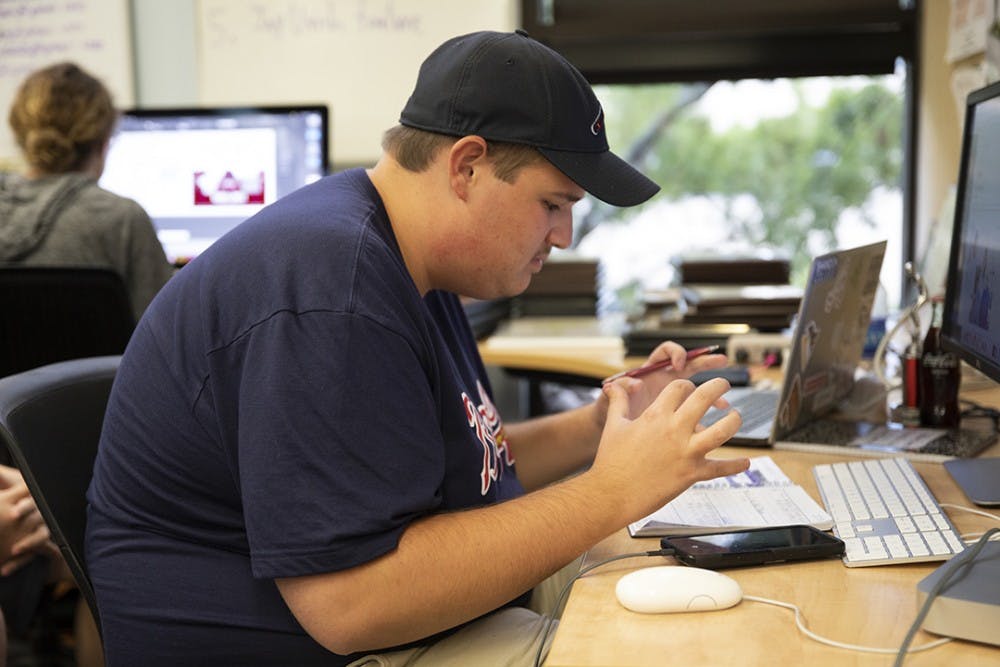The University of South Carolina preaches a “Stigma Free USC” when it comes to mental health, but the ongoing presence of anxiety and depression on campus proves that we have a long way to go. The problem is that the university’s mental health programs seem to focus on fixing existing problems rather than preventing them.
Depression is the number one reason students drop out of school. The National Alliance on Mental Illness conducted mental health research in which they found that “one in four students have a diagnosable illness, 40% do not seek help, 80% feel overwhelmed by their responsibilities and 50% have become so anxious that they struggled in school.”
While depression and anxiety are commonly associated with chemical imbalances in the brain, it is much more complex. Harvard's medical school has boiled the complexity down to “faulty mood regulation by the brain, genetic vulnerability, stressful life events, medications, and medical problems.” Of course, some of those are a part of a chemical imbalance in the brain, but there are also many outside factors that can contribute to students feeling particularly mentally ill.
Because depression and anxiety is caused by a multitude of issues and different people require different treatment, a lot of people cannot be cured by a mere counseling session. Depression can take years to cure.
From therapy to medication to coping mechanisms, it is extremely hard to combat — especially when it comes to college students. Even the simple act of “reaching out,” as USC likes to advertise in times of tragedy, can be incredibly hard for someone struggling with depression, and, in some instances, may not help.
Depression causes an immense feeling of detachment and hopelessness, making people who are seriously struggling less likely to talk to someone about their issues. Even if some do reach out, following up and continuing treatment is a struggle in and of itself due to students' hectic schedules.
Almost every action towards lightening the effects of depression and anxiety lists “eliminating stressors” as a main treatment. However, when a student has to maintain a full load of classes, extracurriculars, career preparation and one or several jobs to stay “competitive” in the college environment, all while also dealing with what can be crippling student loan debt, tuition, textbooks and rent, “eliminating stressors” is not nearly as easy as it sounds.
Students of a higher institution are expected to be able to juggle millions of things, and when they can’t, it is expected that they fix it for themselves. However, giving students yet another thing to manage on top of everything else, even if it is for their own wellbeing, can act as just another stressor.
There are plenty of campus resources that can help with stress management. Yet, while it seems almost everyone on campus is looking to help students, teachers take almost no responsibility when it comes to a student’s mental health.
Students should not have to register their anxiety with the disability center just to be able to handle a class. If your students are struggling, you need to change something about how you are teaching the course. I understand this can be highly difficult when it comes to 100+ lectures, but if there is an overarching problem with achievement, the content is hard and you need to help them. The goal of a college course should not be to weed out the weak, but to merely inform and encourage knowledge in a certain area.
Higher education institutions need to take a stand too. If depression is the number one cause for dropping out, then maybe you should fix some of your university expectations. Limit the amount of hours a student should have to take in order to get a scholarship, and try to allocate university money to make your school more accessible and less stressful to students on a budget. Students seeking an accredited degree should not feel like they have to deflate under the pressure of student loans in order to go to the school they want to attend.
It is not just Student Health Service’s job to work to better the mental health of students. Institutions as a whole and the teachers who work for them need to understand they are the first defense in preventing depression and anxiety. Students are doing their part, it’s time for you to do yours as well.

